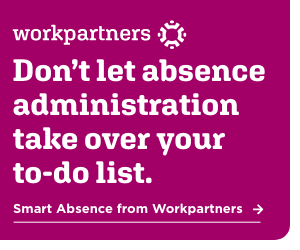Raise your hand if you’re neck deep in COVID-19 vaccine exemption requests. [Yeah, I get it, you’re neck deep, so you can’t raise your hand.]
My friends, this exemption onslaught will only get more intense as we await OSHA’s Emergency Temporary Standard (ETS) that will require employers with over 100 employees to mandate a COVID-19 vaccination for each of its employees. President Biden unveiled this imminent requirement a few weeks back in his most recent COVID-19 action plan.
These exemption requests are coming at us in two different ways – as an accommodation requests under the Americans with Disabilities Act (“ADA”) or under Title VII of the Civil Rights Act of 1964 (“Title VII”). The ADA prohibits discrimination and requires employers to make reasonable accommodations to enable qualified individuals with a disability to perform the essential functions of their job. Title VII prohibits discrimination on the basis of a variety of protected categories, one of which is religion.
If you’re like many employers inundated with these exemption requests, it’s natural to ask the question: If we grant an employee’s vaccine exemption request based on their disability or sincerely-held religious belief, can’t we simply place the employee on an unpaid leave of absence till this pandemic ends? Or even sometime after that?
Not So Fast
Employers are increasingly selecting this choice of accommodation, finding that unvaccinated employees pose a direct threat to others in the workplace. As a result, these employers are placing employees on leave, at times on an indefinite basis.
 Though potentially effective, these seemingly automatic decisions to place employees on leave are quickly being challenged in the courts. Earlier this month, for instance, six employees at a national laboratory filed suit against their employer claiming they were forced on an indefinite leave of absence after they sought an exemption from being vaccinated. The employees claim that they were not offered alternatives to a leave of absence, such as remote work or COVID-19 testing. Finding that unpaid leave presents a “functional loss of employment,” a federal court judge entered a temporary order halting the practice until the court could more closely examine the employees’ claims.
Though potentially effective, these seemingly automatic decisions to place employees on leave are quickly being challenged in the courts. Earlier this month, for instance, six employees at a national laboratory filed suit against their employer claiming they were forced on an indefinite leave of absence after they sought an exemption from being vaccinated. The employees claim that they were not offered alternatives to a leave of absence, such as remote work or COVID-19 testing. Finding that unpaid leave presents a “functional loss of employment,” a federal court judge entered a temporary order halting the practice until the court could more closely examine the employees’ claims.
Insights for Employers
One thing is clear: employer mandates are working. United Airlines, which recently implemented a mandate, reported late last month that more than 99% of its employees are now vaccinated, which was driven, in part, by its mandate.
At the same time, automatically placing an employee on an unpaid leave of absence as an accommodation for their disability or religious exemption is awfully risky.
Why?
The accommodation request calls us to engage in a meaningful discussion with our employee about whether we can offer an accommodation because of their disability or religious belief. As a result of this “interactive process,” we must make an individualized assessment as to the possible accommodations that would help the employee perform the essential functions of their job.
In its COVID-19 guidance, the EEOC explained the interactive process this way:
Employers and employees typically engage in a flexible, interactive process to identify workplace accommodation options that do not impose an undue hardship (significant difficulty or expense) on the employer. This process may include determining whether it is necessary to obtain supporting medical documentation about the employee’s disability.
When we automatically place an employee on a leave of absence, have we really made an individualized assessment? Sure, unpaid leave may serve as an accommodation, but it shouldn’t be the first choice unless our communications with the employee lead to the conclusion that leave is the only option. We must consider alternative accommodations, such as masking requirements, moving a work location to minimize risk of transmission, and even remote work. Heed the EEOC’s admonition, which doesn’t mince words:
If an employer determines that an individual who cannot be vaccinated due to disability poses a direct threat at the worksite, the employer cannot exclude the employee from the workplace—or take any other action—unless there is no way to provide a reasonable accommodation (absent undue hardship) that would eliminate or reduce this risk so the unvaccinated employee does not pose a direct threat.
The message from the EEOC and early court rulings is clear: when faced with a vaccination exemption request, we should fully engage the employee, identify the direct threat they pose to the workplace and consider accommodations to keep them working. If these are not workable, then — and only then — is unpaid leave an option.